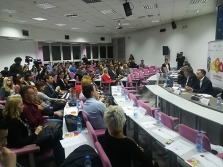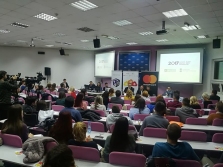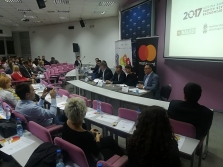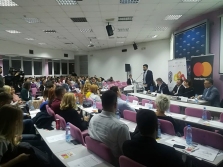NALED and the Serbian Ministry of Finance, under the patronage of company Mastercard, in partnership with Societe Generale Bank and in cooperation with the Belgrade University Faculty of Organisational Sciences and student management consulting organisation Case Study Club, organised the “Cashless Case Challenge 2017” competition, as part of the implementation of an educational campaign in the Year of Combatting the Grey Economy.
The competition is intended for the best student ideas that can contribute to the development of a cashless society, as well as the more accountable and committed participation of the youngest part of the population in the fight against the grey economy.
Electronic payments enable transactions to be recorded and visible to tax authorities even when a fiscal account is not issued. In Serbia, only 23 per cent of citizens give preference to cards, which clearly suggests that there is a great room to encourage non-cash payments as a good way of advancing economic development, strengthening the tax culture and curbing the grey economy, showed a new NALED survey.



